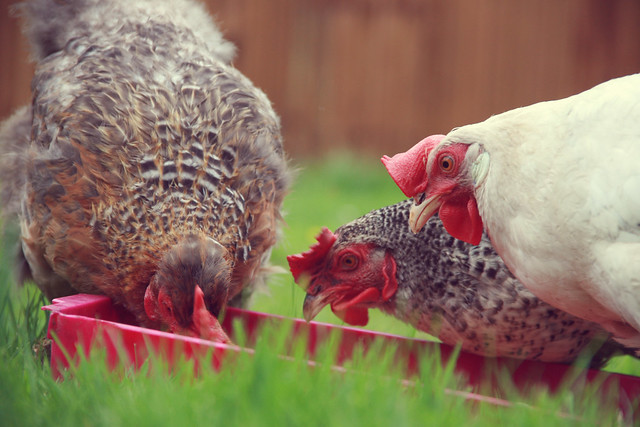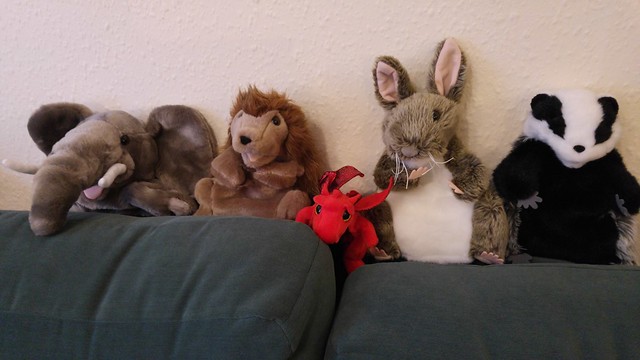Words for pig and related beasts in Celtic languages:

Words marked with a * are reconstructions.
| Proto-Celtic |
*mokkus = pig
*mokk(w)yatis = swineherd |
| Old Irish (Goídelc) |
mucc [muk] = pig, sow; a war engine: a shed to cover sappers
muccaid [ˈmukiðʲ] = swineherd
muccaidecht [ˈmukiðʲext] = herding swine |
| Middle Irish (Gaoidhealg) |
muc, mucc = pig, sow
muc(c)ach = pertaining to swine
muc(c)aid = swineherd
muc(c)aidecht = herding swine
muc(c)álach = a brood or litter of pigs
muc(c)lach = piggery |
| Irish (Gaeilge) |
muc [mˠʊk] = pig; heap, bank, drift; scowl; sow
mucachán = (of person) pig, swine
mucaire = slovenly worker
mucaireacht = slovenly work
mucais = pit sty; dirty, slovely person; hogback
muicí = swineherd
muicíocht = swine-herding |
| Scottish Gaelic (Gàidhlig) |
muc [muxɡ] = pig, sow
mucag [muxgag] = little pig, piggy, (rose)hip
mucaidh = swineherd
mucaireachd = swineherding, herding pigs
muicfheoil [muçgʲɔl] = pork
muc-mhara [muxgˈvarə] = whale
muc-stigean = porpoise |
| Manx (Gaelg) |
muc = hog, swine, pig, grunter
muclagh = piggery, pigsty, sty
muick = swine
bochilley muickey = swineherd
muc hallooin = aardvark
muc varrey = whale, porpoise |
| Proto-Brythonic |
*mox = pig
*möxjad = swineherd |
| Middle Welsh (Kymraec) |
moch = pigs, swine
mochduy = pigsty
mochawg = piggish, swinish
meichiat, meicheit, meichad = swineherd |
| Welsh (Cymraeg) |
moch [moːχ] = pigs, swine, hogs; greedy, dirty, lazy, drunk, or immoral persons; small pumps used underground in coal-mines to remove water
mochyn [ˈmɔχɨ̞n / ˈmoːχɪn] = pig, swine, hog
mocha, mochi, mochian = to behave like a pig, wallow, grunt, defile, sully
mochach = contemptible or swinish people
mochaidd = swinish, filthy, dirty, vile, immoral, greedy
mochdra = filthiness, dirtines
mochdy = pigsty
mochgig = pork, ham, bacon
mochog = piggish, swinish
mochwr = swineherd, pig-dealer, untidy workman
meich(i)ad = swineherd |
| Middle Cornish (Cernewec) |
moch, môch = pigs
mochyn = pig |
| Cornish (Kernewek) |
mogh [mɔːx / moːʰ] = pigs, swine |
| Old Breton |
moch = pigs, swine
mochiat = swineherd |
| Middle Breton (Brezonec) |
moch = pigs, swine |
| Breton (Brezhoneg) |
moc’h [moːχ] = pigs, swine
moc’haer = swineherd |
Etymology: borrowed from a non-Indo-European substrate language. Words from the same Proto-Celtic root include mocke (a slovenly woman) in Middle Dutch and moche (sow, female pig) in Middle High German [source].
| Old Irish (Goídelc) |
cullach [ˈkul͈ax] = boar, stallion
muccullach = boar |
| Middle Irish (Gaoidhealg) |
cullach, colach = boar, stallion |
| Irish (Gaeilge) |
collach [kəˈl̪ˠɑx / ˈkɔl̪ˠəx / ˈkʌl̪ˠax] = boar (male pig); male crab; crude, fleshy, person |
| Scottish Gaelic (Gàidhlig) |
cullach = mature male (unneutered) animal (such as boars, hogs, etc) |
| Manx (Gaelg) |
collagh = boar, male, stallion
collagh muc = boar (domestic) |
| Welsh (Cymraeg) |
ceilliog = having testicles, uncastrated, entire, male |
| Middle Breton (Brezonec) |
callouch, qalloc’h, calloc’h = entire, standard, stallion |
| Breton (Brezhoneg) |
kalloc’h = entire |
Etymology: from Proto-Celtic *kalljo- (testicle).
| Proto-Celtic |
*t(w)orkos = boar (pig) |
| Old Irish (Goídelc) |
torc [tork] = (wild) boar, chieften, hero |
| Middle Irish (Gaoidhealg) |
torc = (wild) boar, chieftan, hero |
| Irish (Gaeilge) |
torc [t̪ˠɔɾˠk / t̪ˠʌɾˠk] = (wild) boar, hog; portly, corpulent person, man of substance
torcán = little, young boar; small corpulent person
torc allta = wild boar
torc-chú = boar hound
torcshleá = boar-spear |
| Scottish Gaelic (Gàidhlig) |
torc = [tɔr̪ˠxg] = boar, hog
torc-nimhe, torc-fiadhaich = wild boar |
| Middle Welsh (Kymraec) |
tỽrch, twrch, tyrch = hog, (wild) boar, mole |
| Welsh (Cymraeg) |
twrch [tʊrχ] = hog, (wild) boar, mole
twrch (y) coed = woodlouse
twrch daear = mole, badger
tyrchu, tyrchio = to burrow, dig (up), root up, nuzzle, rummage; to catch (moles)
tyrchaidd = hoglike, hoggish, swinish, greedy
tyrchwr, trychydd = mole-catcher, bulldozer |
| Old Cornish |
torch = hog |
| Middle Cornish (Cernewc) |
torch = hog |
| Cornish (Kernewek) |
torgh = hog, boar |
| Old Breton |
torch = boar |
| Middle Breton (Brezonec) |
tourch = boar, ram; a debauched man |
| Breton (Brezhoneg) |
tourc’h = boar, macho, debauched |
Etymology: from the Proto-Indo-European *twerḱ- (to cut) [source]. English words from the same PIE root include trunk, truculent and sarcasm [source].
| Proto-Celtic |
*sukkos = pig |
| Old Irish (Goídelc) |
socc = pig, sow |
| Middle Irish (Gaoidhealg) |
suic, socc, soc = snout, ploughshare |
| Irish (Gaeilge) |
soc [sˠɔk] = sow
socach = nozzled, snouted, beaked, pointed
socadán = person with pointed face, nosy person, interloper, busybody |
| Scottish Gaelic (Gàidhlig) |
soc [sɔxg] = beak, snout, sockt, ploughshare, short, chubby person
socach [sɔxgəx] = snouted, beaked |
| Manx (Gaelg) |
sock = bow, nose, snout, tow; ploughshare, nozzle |
| Proto-Brythonic |
*hux = pig
*sux = ploughshare |
| Welsh (Cymraeg) |
hwch [huːχ] = sow, pig, swine, dirty creature |
| Old Cornish |
hoch = pig, hog |
| Middle Cornish (Cernewec) |
hoch = pig, hog
hochwayu = hog-spear |
| Cornish (Kernewek) |
hogh = hog, pig, swine
hogh Gyni = Guinea pig
hoghwuwa = to pigstick
hoghwuwans = pig sticking |
| Old Breton |
hoch = sow |
| Middle Breton (Brezonec) |
houch, houc’h, hoh = sow
oc’hal, hoc’ha, hoc’he = to grunt, oink
oc’hellât, houc’hellat = to burrow, dig
hoch-goez, houch guez = wild boar
oh mor, hoc’h-mor = porpoise
houc’h-tourc’h = boar |
| Breton (Brezhoneg) |
houc’h = pig (male, often neutered) |
Etymology: from the Proto-Indo-European suH- (pig, hog, swine). The English word hog was possibly borrowed into Old English from Welsh. Other words from the same Proto-Celtic root include socket in English, and soc (ploughshare) in French [source].
| Proto-Celtic |
*ɸorkos = piglet |
| Gaulish |
*orkos = pork, piglet |
| Old Irish (Goídelc) |
orc [ork] = piglet |
| Middle Irish (Gaoidhealg) |
orc = young pig |
| Irish (Gaeilge) |
arc(án) = piglet |
| Scottish Gaelic (Gàidhlig) |
orc [ɔr̪ˠxg] = young animal, offspring (esp. piglet or sheep); whale (archaic)
orcan [ɔr̪ˠxgan] = piglet, young pig |
| Manx (Gaelg) |
ark = young pig, piglet, sucking pig |
| Pictish |
orc = piglet, young pig |
Etymology: from the Proto-Indo-European pórḱos (piglet), which is also the root of the English word farrow (a litter of piglets), and the German word Ferkel (piglet) [source].
The name Orkney comes from the Old Norse Orkneyjar (seal islands), from orkn (seal) and ey (island). It is thought that Norwegian settlers reinterpreted the original Pictish tribal name element orc (piglet) [source].
| Proto-Celtic |
*banwos = pig |
| Gaulish |
Banuus, Banuo = pig |
| Old Irish (Goídelc) |
banb [ban͈v] = piglet, young pig |
| Middle Irish (Gaoidhealg) |
banb, bainb = young pig |
| Irish (Gaeilge) |
banbh [ˈbˠanˠəvˠ] = piglet; Ace of Hearts |
| Middle Irish (Gaoidhealg) |
banb, bainb = young pig |
| Scottish Gaelic (Gàidhlig) |
banbh [banav] = young pig, piglet
banbhan [banavan] = small piglet
banbhradh [banavrəɣ] = herd of piglets |
| Manx (Gaelg) |
bannoo = sucking pig, piglet |
| Middle Welsh (Kymraec) |
banv = (young) pig, piglet |
| Welsh (Cymraeg) |
banw = (young) pig, piglet, weaned pig, hog; young animal |
| Old Cornish |
baneu = sow |
| Middle Cornish (Cernewec) |
banb = sow |
| Cornish (Kernewek) |
banow = sow |
| Middle Breton (Brezonec) |
banv = sow, pig |
| Breton (Brezhoneg) |
banv = mother sow |
Etymology: unknown – possibly from a non-Indo-European language [source].
| Proto-Brythonic |
*porxell = piglet |
| Middle Welsh (Kymraec) |
porchell, parchell = (young) pig, piglet |
| Welsh (Cymraeg) |
porchell [ˈpɔrχɛɬ] = sucking-pig, piglet, little pig, porker, pig, swine, hog |
| Old Cornish |
porchel = young pig, piglet |
| Middle Cornish (Cernewec) |
porhel = young pig, piglet |
| Cornish (Kernewek) |
porghel = young pig, piglet
porghellik = piglet, sucking pig |
| Old Breton |
porchill = piglet |
| Middle Breton (Brezonec) |
porhell, porchell, porchel = piglet
porchelles = sow |
| Breton (Brezhoneg) |
porc’helleg = piglet |
Etymology: from the Late Latin porcellus (piglet), from the Latin porcus (pig), from the Proto-Italic *porkos (pig) from the Proto-Indo-European pórḱos (piglet) [source]. Words from the same PIE root include varken (pig) in Dutch, pork in English, and porc (pig, pork) in French [source].
Words marked with a * are reconstructions.
Sources: Wiktionary, Am Faclair Beag, Online Manx Dictionary, Teanglann.ie, eDIL – Electronic Dictionary of the Irish Language, In Dúil Bélrai English – Old Irish glossary, Geiriadur Prifysgol Cymru, Gerlyver Kernewek, Gerlyvyr Cernewec, Dictionaire Favereau, TermOfis, Le dictionnaire diachronique du breton, Geriafurch, English – ProtoCeltic WordList (PDF), Etymological Dictionary Of Proto Celtic











